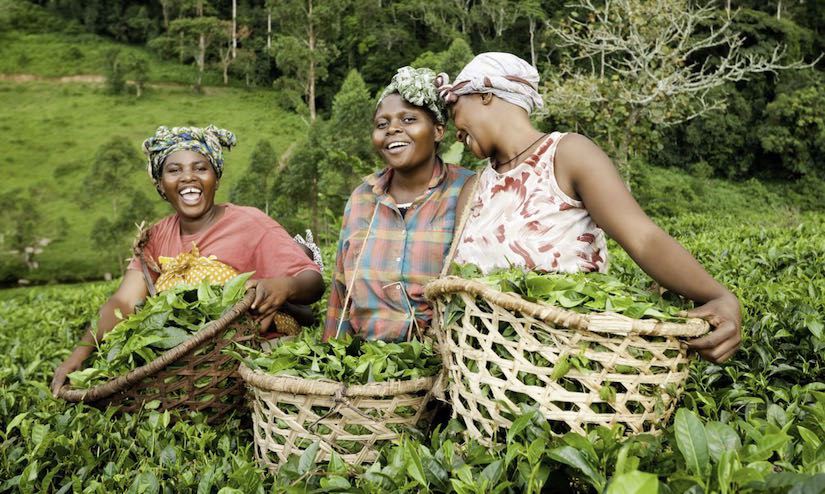Credit facilities skewed against women farmers – ActionAid
The ActionAid Nigeria (AAN) has called for action over the non-accessibility of credit facilities for women farmers, especially those in rural areas. The Food and Agriculture Programmes Coordinator for ActionAid Nigeria, Mr. Azubike Nwokoye, said this on Thursday in Abuja at a round table meeting on “Access to Agricultural Credit for Smallholder Women Farmers”. IPOB […]

FILE PHOTO: Tea Farmers in Uganda
The ActionAid Nigeria (AAN) has called for action over the non-accessibility of credit facilities for women farmers, especially those in rural areas.
The Food and Agriculture Programmes Coordinator for ActionAid Nigeria, Mr. Azubike Nwokoye, said this on Thursday in Abuja at a round table meeting on “Access to Agricultural Credit for Smallholder Women Farmers”.
- IPOB accuses Wike, Ngige, others of betraying Nnamdi Kanu
- What every Muslim should know before buying ram for Sallah
According to him, this has led to untold hardship and by implication economic loss to them and the nation, as having such loan facilities would enable them boost food production in the country, although they have the capacity to repay the loans at a given time.
Azubike, who identified the delay in the recapitalisation of Bank of Agriculture (BOA) by government as another snag plaguing the agricultural sector, urged relevant authorities to get rid of political farmers who are snatching loans meant for women farmers.
He lamented that before women farmers would even get the loan, that is, after undergoing rigorous processes like providing lands and male civil servants at a particular level, as collateral and surety, the farming season would even be over.
He urged that the federal and state governments should set up an annual special budget line to enable women farmers access loans effortlessly.
Azubike said, “Accessing credit for rural farmers is really difficult. We are making suggestions that would make government’s financial institutions like the Central Bank of Nigeria (CBN), Bank of Agriculture (BOA), Bank of Industry (BOI), and Nigeria Incentive-Based Risk Sharing System for Agriculture Lending Plc (NIRSAL), and even commercial banks to think out of the box.
“That is why one of the strongest recommendations is that the federal and state ministries of agriculture should create a budget line on strengthening access to credit for smallholder women farmers.
“What that would do is that it would be a hand-holding process for different cooperatives. There is a lot of criteria that need to be met in terms of wanting to have access to credit like writing their business proposal and so on.
“That yearly budget will help if FMARD and the state ministries of agriculture would get to support women cooperatives to be able to access available funding. The process will also ensure that they access this money and given the right support, they will be able to pay on time.
“Even the security situation is worsened, post-harvest losses are high which is also a challenge in loan repayment. Climate change issues like drought, flood and so on. That is why we also mentioned the issue of agriculture insurance going hand in hand with credit facilities.
“The truth is that as a country, we cannot be doing average of about 40 per cent across Nigeria as a country in terms of access to credit. The 43 per cent is not just access to commercial bank credit. It is even a makeup of savings group. It is actually their own community funds and not even government facilities.”
